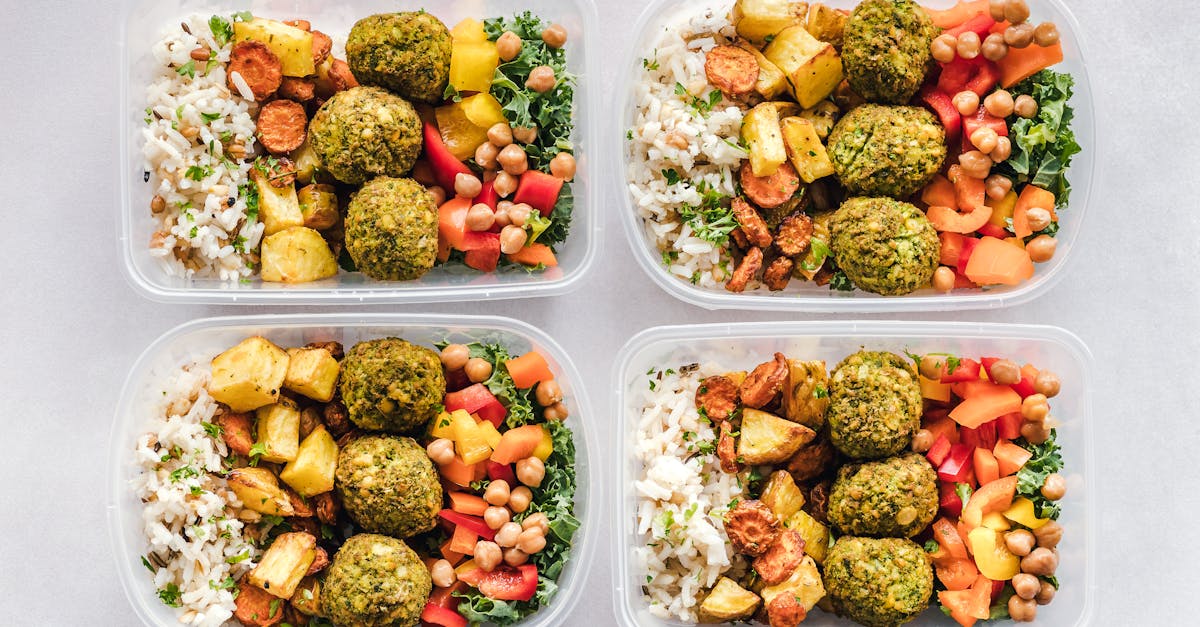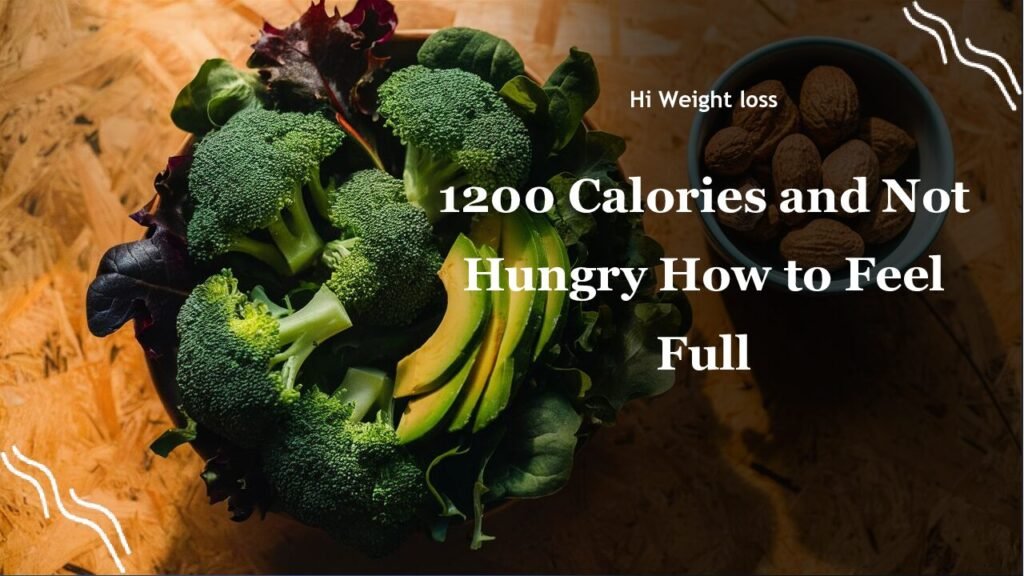“`
Struggling to stick to a 1,200-calorie diet because you’re always hungry? It’s a common problem, and it often leads to diet failure and frustration. However, by strategically choosing the right foods and planning your meals, it’s entirely possible to feel full and satisfied while staying within your calorie goals. This article will explore the science-backed strategies and practical tips to help you eat 1,200 calories a day and not be hungry, ensuring you reach your weight loss goals while enjoying your meals.
How Can I Eat 1,200 Calories a Day and Not Be Hungry?
The Science of Satiety on a Low-Calorie Diet
The key to feeling full on a 1,200-calorie diet isn’t just about reducing calories, it’s about understanding satiety—the feeling of fullness and satisfaction after eating. When you eat, several hormones are released that signal to your brain that you’re no longer hungry. These hormones respond differently to different types of foods, and by choosing foods that are high in nutrients and fiber, you can better control your appetite.
When I first tried cutting calories, I was always hungry. I’d eat a small salad and be reaching for a snack an hour later. It wasn’t until I started focusing on the types of food I was eating, rather than just the quantity, that I started to see a real change in my hunger levels. Focusing on protein, fiber, and healthy fats was the game changer.
Prioritizing Protein: Your Ally Against Hunger
Protein is a powerhouse nutrient for anyone watching their calorie intake. It takes longer to digest compared to carbohydrates and fats, which means it keeps you feeling full for longer periods. This makes it less likely you’ll reach for unhealthy snacks between meals. Lean proteins, such as chicken breast, fish, tofu, and beans, are excellent choices. The goal should be to aim for at least 4-5 palm-sized portions of lean protein spread evenly throughout the day, as noted by Precision Nutrition.
A friend of mine, Sarah, who is a fitness enthusiast, once shared that she always includes protein in every meal and snack. She told me “It’s the one thing that keeps me from feeling like I’m starving all the time!”. She usually chooses Greek yogurt with berries for breakfast, grilled chicken salad for lunch, and a piece of salmon with vegetables for dinner.
The Power of Non-Starchy Vegetables
Non-starchy vegetables like leafy greens, broccoli, cauliflower, and cucumbers are your secret weapon when eating 1,200 calories a day. These vegetables are packed with fiber and water, which helps to fill you up without adding many calories. Precision Nutrition also suggests aiming for at least four fist-sized servings of vegetables per day. Think about adding a large salad to your lunch or a side of steamed greens to your dinner. Not only will they keep you feeling full, but they’re also loaded with vitamins and minerals.
My own experience with increasing vegetable intake was transformative. I used to have a small side salad at dinner. When I started eating more vegetables, like roasted broccoli with garlic, or having a large leafy green salad with grilled chicken, it felt like I was eating much bigger meals without increasing my calorie intake.

Choosing Minimally Processed Whole Foods
Whole foods are the foundation of any healthy diet, especially if you’re restricting calories. Fruits, vegetables, whole grains, and lean proteins are nutrient-rich and contain the fiber you need to stay full and satisfied. On the other hand, highly processed foods often lack the necessary nutrients and fiber, which can lead to hunger pangs shortly after eating them. Opt for foods like brown rice, quinoa, apples, and berries, which are excellent sources of natural fiber and essential nutrients. According to studies, whole foods can improve your satiety and regulate your blood sugar better, which can be a huge win on a reduced-calorie diet.
I remember a period when I relied heavily on packaged “diet” foods. While they were low in calories, I was constantly hungry. Switching to whole, unprocessed foods made a huge difference, and I was surprised how much more satisfying real food was.
The Importance of Meal Planning
Planning your meals is essential when you’re trying to manage your calorie intake effectively. Deciding what you will eat for each meal and snack ahead of time helps you to avoid impulsive choices and prevents calorie counting on the go. A structured meal plan, as suggested by WebMD, is crucial for maintaining a 1,200-calorie diet successfully. Spend some time each week planning your meals. This way you’ll have a clear idea of what to expect each day. This minimizes the risk of overeating or making poor food choices out of hunger.
A friend of mine, John, uses meal prepping containers. He prepares his meals on the weekend so he has healthy options available during the busy week. He told me that he is less tempted to grab something unhealthy when he knows that he already has a delicious, nutritious meal waiting for him.
Healthy Fats: A Little Goes a Long Way
Healthy fats, such as those found in olive oil, nuts, and avocados, are vital for satiety. While they are calorie-dense, they help increase the calorie density of your meals without adding an excessive amount of calories. A little bit of healthy fat can go a long way in keeping you full and satisfied. LiveHealthOnline highlights the importance of incorporating these fats into your diet. Add a drizzle of olive oil on your salad, a small handful of nuts as a snack, or some avocado slices with your meal.
When I started adding healthy fats to my meals, I noticed that I was satisfied with smaller portions. A few slices of avocado in my salads made such a big difference in how I felt.
Staying Hydrated: A Simple But Powerful Strategy
Drinking plenty of water throughout the day is another simple yet powerful strategy to combat hunger while on a low-calorie diet. Water can help to create a sense of fullness, which helps you eat less at meals. Moreover, a lot of times, when we think we’re hungry, we’re actually thirsty. WebMD also suggests that staying hydrated is key to overall diet success. Aim to drink water throughout the day, and make sure you include plenty of fruits and vegetables that have high water content as part of your diet.
I keep a water bottle with me all the time, and I make sure to sip on it continuously. I realized that when I don’t drink enough water, I’m much more likely to overeat.
Sample 1200 Calorie Meal Plan
Here’s a sample meal plan to give you an idea of what a 1,200-calorie day might look like. It’s designed to keep you feeling full while providing the necessary nutrients. Remember that this is just a sample. You can adjust the meals and portions based on your preferences.
| Meal | Food | Approximate Calories |
|---|---|---|
| Breakfast | Greek yogurt with 1/2 cup berries and 1/4 cup granola | 300 |
| Snack | Handful of almonds | 150 |
| Lunch | Large salad with 4 oz grilled chicken, mixed greens, cucumbers, tomatoes, and 1 tbsp olive oil | 350 |
| Snack | Apple slices with 2 tbsp peanut butter | 200 |
| Dinner | 4 oz Baked salmon with 1 cup steamed broccoli | 200 |
| Total Calories | 1200 | |
Conclusion
Eating 1,200 calories a day and not feeling hungry is achievable with the right strategies. Remember Sarah’s consistent focus on protein, the impact that John’s prepared meal schedule had for his diet, and the importance of your friend’s, and my personal experience with, the power of whole foods. By prioritizing lean protein, increasing your intake of non-starchy vegetables, choosing minimally processed whole foods, planning your meals, incorporating healthy fats, and staying hydrated, you can create a balanced diet that keeps you full and satisfied. These strategies will not only help you manage your calorie intake but will also improve your overall health and well-being. Start incorporating these tips today and take control of your hunger while working towards your weight loss goals.
Ready to start your journey to a more satisfying 1,200-calorie diet? Share this article with someone who needs it, and get started on your meal planning today. Small changes lead to big results!
FAQ
Is it healthy to eat 1,200 calories a day?
A 1,200-calorie diet can be healthy for some individuals, especially those under medical supervision, but it may not be appropriate for everyone. It’s crucial to ensure that you are getting all the necessary nutrients. It’s always a good idea to speak to a healthcare professional or registered dietitian before starting a very low calorie diet to ensure it is right for your individual health needs.
What are the best snacks to eat on a 1,200-calorie diet?
Good snack choices include a small handful of nuts, Greek yogurt, a piece of fruit, or some vegetables with hummus. These options will keep you full and provide valuable nutrients. The key is to choose snacks that are high in fiber and protein. Be mindful of your portion sizes.
Can I eat carbohydrates on a 1,200-calorie diet?
Yes, you can and should eat carbohydrates. Focus on complex carbohydrates like whole grains, fruits, and vegetables, rather than refined carbohydrates such as white bread and sugary snacks. The complex carbohydrates will provide you with longer lasting energy.
How often should I eat on a 1,200-calorie diet?
It’s best to eat three main meals and possibly two small snacks throughout the day to help maintain stable blood sugar levels. This helps to keep you feeling full and prevents the urge to overeat at your main meals.
What if I feel too hungry on this diet?
If you’re consistently feeling too hungry, assess your food choices to ensure you’re eating enough protein and fiber-rich foods. It’s also important to drink plenty of water and ensure that your diet is balanced and not overly restrictive. Seek advice from a healthcare professional if the hunger persists.
“`



